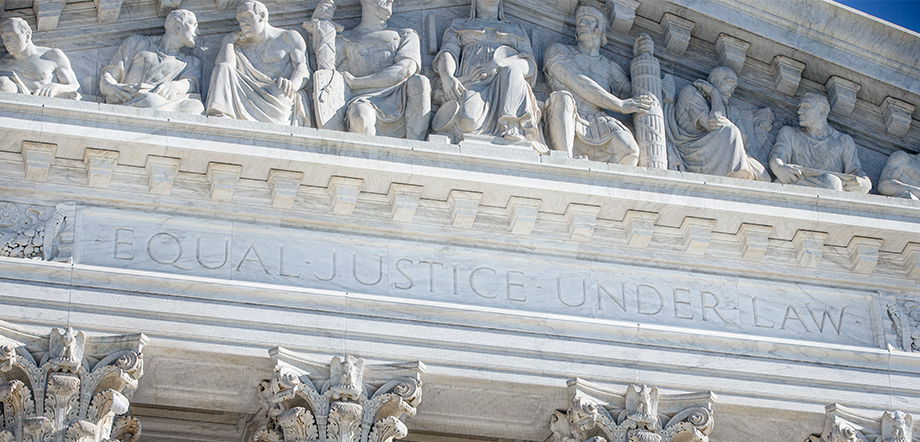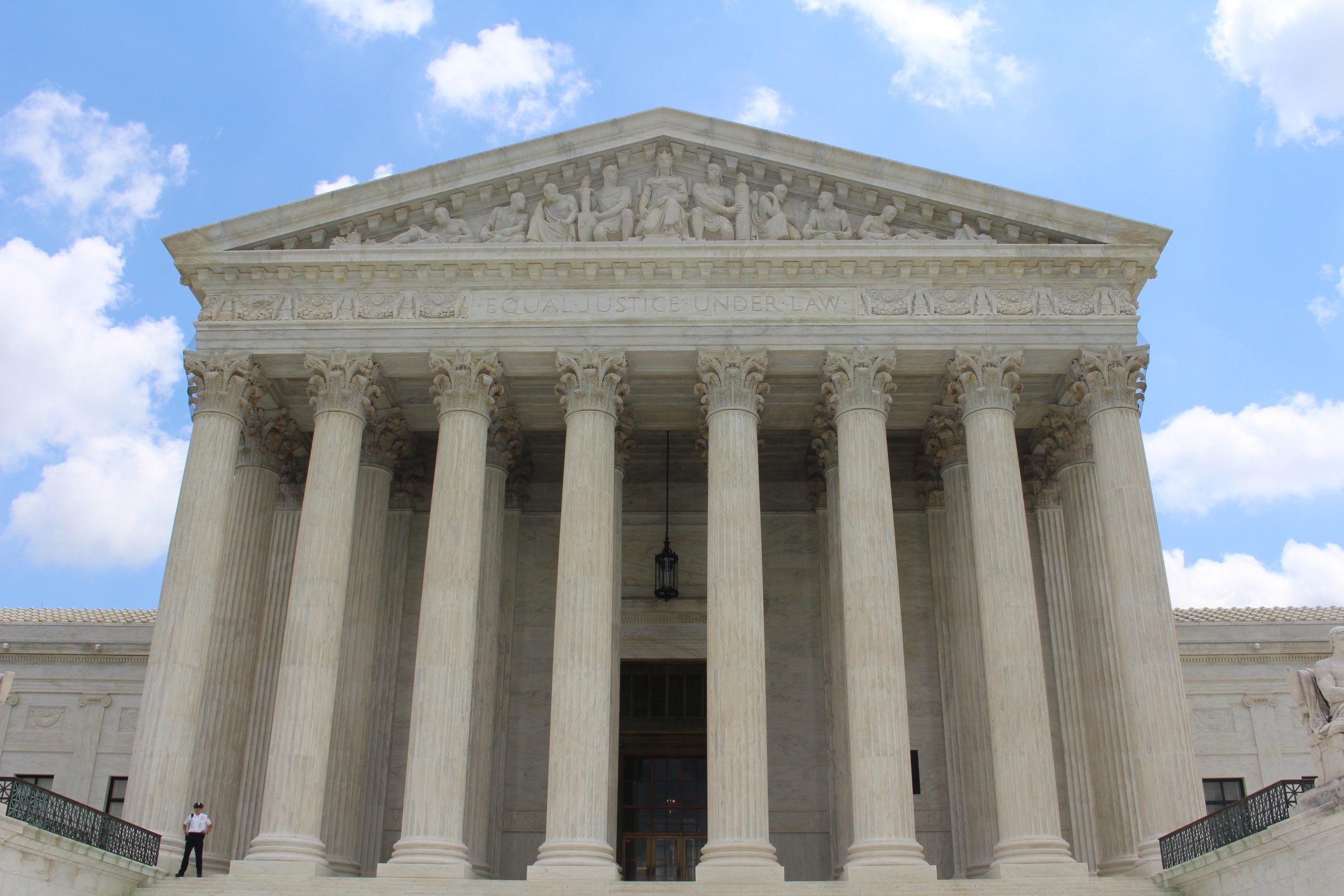Client Alerts
Supreme Court Rejects College Affirmative Action in Landmark Decision
July 2023

Client Alerts
Supreme Court Rejects College Affirmative Action in Landmark Decision
July 2023
Background
In a historic 6-3 decision, the Supreme Court of the United States ruled that affirmative action programs utilized by the University of North Carolina (“UNC”) and Harvard College (“Harvard”) are unconstitutional under the Equal Protection Clause of the 14th Amendment. The Supreme Court consolidated two cases for review: Students for Fair Admissions v. President and Fellows of Harvard and Students for Fair Admissions v. University of North Carolina. The issue before the Court was whether universities can use an applicant’s race in the admissions process. In effectively overruling its decision in Grutter v. Bollinger, the Court held that universities cannot consider race in admissions decisions in the manner that Harvard and UNC did. The Supreme Court’s decision effectively ends race-conscious admissions programs in higher education institutions on a go-forward basis.
Facts
Students for Fair Admissions (SFFA) is a nonprofit organization opposed to race-conscious admissions policies. SFFA brought separate actions against the President and Fellows of Harvard and UNC, arguing affirmative action violates the Equal Protection Clause of the 14th Amendment and Title VI of the Civil Rights Act of 1964. SFFA contended that an applicant’s race should not factor into an admissions decision.
Both schools argued their respective admissions policies were constitutional and aligned with former precedent set by the Court in Grutter v. Bollinger. In Grutter, the Supreme Court held that the Equal Protection Clause of the 14th Amendment does not prohibit the narrowly tailored use of race in university admissions plans, as promoting student diversity is a compelling interest. Harvard and UNC used race as one of many factors in their admissions decisions. The schools argued that such a holistic view of college applicants was consistent with court precedent and was not exclusionary or harmful as SFFA contended.
While brought as separate actions, the Supreme Court agreed to review both cases in tandem. The Court was tasked with deciding whether to overturn decades of precedent and categorically ban the use of race in higher education admissions policies nationwide.
The Opinions
Writing for the majority, Chief Justice John Roberts, Jr., stated that both universities’ programs “lacked sufficiently focused and measurable objectives warranting the use of race, unavoidably employ race in a negative manner, involve racial stereotyping, and lack meaningful endpoints.” Chief Justice Roberts explained that college admissions programs may consider race merely to allow an applicant to explain how their race influenced their character in a way that would have a concrete effect on the university. In other words, a student “must be treated based on his or her experiences as an individual – not on the basis of race.” Chief Justice Roberts did stress, however, that schools are not barred from ever considering race on a case-by-case basis.
Justice Sonia Sotomayor and Justice Ketanji Brown Jackson wrote dissenting opinions. Justice Sotomayor wrote that the decision (1) supplants one’s right to equal protection, (2) fosters racial inequality in education, and (3) destroys the “vision of a Nation with more inclusive schools,” as articulated in Brown v. Board of Education. Justice Sotomayor went on to emphasize the majority’s dismantling of “decades of precedent and momentous progress” and inherent “colorblindness.”
In a similar vein, Justice Jackson wrote: “With let-them-eat-cake obliviousness, today, the majority pulls the ripcord and announces ‘colorblindness for all’ by legal fiat. But deeming race irrelevant in law does not make it so in life.”
Key Takeaways
- The Court’s decision is limited to higher education institutions, not private or public-company employers or employment practices. For now, private and public companies need not change their Equity, Diversity, and Inclusion (EDI) efforts, unless they are operating outside of the scope of current laws, using demographic data in decision-making, or participating in advancement hiring, pay, or promotion practices that are not inclusive and equitable for all.
- As a precautionary measure to ensure fair practices, all organizations should consider periodic audits of their EDI initiatives. While the Court’s decision is limited to higher education, it is best to ensure that your organization’s EDI efforts do not include hiring or promoting employees based on race or another protected class.
- However, the Court’s decision may open the door to several other discussions and potential future litigation related to EDI programs and Title VII of the Civil Rights Act. Under Title VII, employers are precluded from discriminating based on race, color, religion, sex, or national origin. Opponents of employer-based EDI programs may argue that the same reasoning held by the Supreme Court majority in the Harvard case should apply to private-based EDI programs under Title VII. We will continue to monitor developments in this area, but we encourage you to ask your attorneys to be hypervigilant about this issue. Staying up to date on the other cases, related litigation, and proposed laws that may impact EDI initiatives allows organizations to stay ahead of any issues presented by future changes in the law.
For your reference, you can review the Supreme Court’s decision here.
ADDITIONAL INFORMATION
For more information, please contact:
- Ludgy A. LaRochelle | 216.696.4732 | ludgy.larochelle@tuckerellis.com
- Bradley H. Dennis | 216.696.2590 | bradley.dennis@tuckerellis.com
- Tayler L. Gill | 216.696.5187 | tayler.gill@tuckerellis.com
This Client Alert has been prepared by Tucker Ellis LLP for the use of our clients. Although prepared by professionals, it should not be used as a substitute for legal counseling in specific situations. Readers should not act upon the information contained herein without professional guidance.
